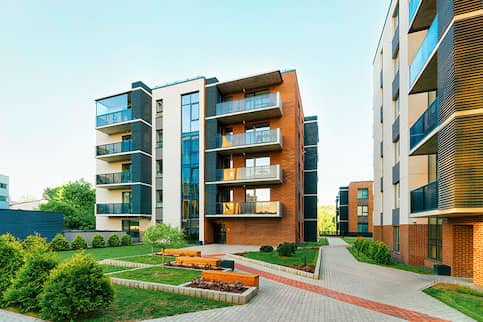Explore the Future of HOA Condo Advancement
Explore the Future of HOA Condo Advancement
Blog Article
The Duty of an HOA in Establishing and Enforcing Neighborhood Guidelines for Homeowners
The function of a Homeowners Organization (HOA) in implementing and establishing neighborhood guidelines is essential to preserving a cohesive and organized household environment - hoa condo. By developing clear rules that regulate elements such as residential or commercial property maintenance and community conduct, the HOA not only establishes standards for citizens yet likewise cultivates a sense of belonging and responsibility. However, the execution of these guidelines can present different obstacles, raising questions concerning neighborhood, justness, and interaction engagement. As we check out these intricacies, it ends up being obvious that the influence of an HOA expands much past plain rule enforcement.
Understanding Homeowners Organizations
Homeowners associations (HOAs) function as regulating bodies for household areas, playing a vital function in maintaining residential property worths and fostering a sense of community. Generally created by designers, HOAs are composed of property owners within a designated location who choose a board to manage the association's tasks. The primary functions of an HOA include applying neighborhood rules, taking care of common locations, and organizing area occasions.
HOAs operate under a collection of regulating documents, consisting of covenants, problems, and restrictions (CC&R s), which outline the legal rights and duties of property owners. These regulations aim to make sure that properties are kept to a certain requirement, therefore securing the visual appeal and general worth of the community. Additionally, HOAs commonly collect dues from property owners to money upkeep, landscaping, and other social work.
The visibility of an HOA can significantly influence the living experience within an area (hoa condo). While some residents appreciate the structured atmosphere and features given, others might locate specific policies limiting. Balancing the passions of all homeowners is important for an HOA to work properly, guaranteeing that it serves its designated function of improving neighborhood living while appreciating private property owner civil liberties
Creating Area Standards

To begin, an HOA should carry out studies or convene that permit homeowners to articulate their concerns and ideas. This participatory procedure promotes a feeling of ownership and boosts compliance. Next, the HOA board should examine the responses to recognize usual motifs and top priorities that call for official addition in the guidelines.
It is also necessary to make sure that the guidelines are clear, concise, and easily recognized. Obscurities can cause problems and misunderstandings, undermining the objective of the standards. The standards need to be detailed, covering various aspects of area living, including residential property upkeep, sound levels, and usage of typical areas.
Enforcement of Regulations
Efficient enforcement of community policies is crucial for keeping order and making sure that all locals comply with the established standards. An HOA needs to implement a structured strategy to impose these laws, which commonly involves a mix of monitoring, interaction, and fines for non-compliance.
First, normal inspections and neighborhood patrols can help determine offenses, guaranteeing that regulations are regularly applied across the neighborhood. This positive monitoring enables the HOA to deal with issues before they intensify, promoting a sense of responsibility amongst residents.
Second, clear interaction is vital. Homeowners ought to be notified of the regulations and the procedures for reporting infractions. An open line of interaction urges homeowners to voice issues and seek information on standards, which can boost compliance.

Finally, when infractions take place, the HOA must impose repercussions as described in the regulating files. This may include cautioning letters, fines, or, in severe situations, legal action. It is very important that penalties are applied rather and continually to keep depend on within the neighborhood. By successfully implementing policies, an HOA can cultivate a harmonious living setting that mirrors the cumulative values of its citizens.
Benefits of HOA Rules
Many benefits emerge from the execution of HOA policies, which offer to improve the quality of life within a community. One key advantage is the maintenance of property worths. By enforcing criteria for appearances and upkeep, HOAs make sure that homes and typical locations stay eye-catching, promoting a preferable living atmosphere that can bring about enhanced home worths over time.
Furthermore, HOA regulations promote uniformity and uniformity within the area. This coherence in design and maintenance aids to create a feeling of belonging amongst locals, adding to community pride and a favorable atmosphere. Developed guidelines assist in problem resolution among next-door neighbors by providing clear expectations and procedures for actions, thus lessening disagreements.
An additional substantial advantage is the provision of shared amenities and services. Numerous HOAs handle neighborhood centers such as clubhouses, pools, and parks, which improve leisure possibilities for homeowners. These services not just boost the top quality of life but also encourage social interaction.
Inevitably, the regulations established forth by an HOA grow an efficient, unified neighborhood, making certain that locals delight in a high standard of living while cultivating an encouraging setting for all home owners.
Usual Obstacles Dealt With by HOAs
In the middle of the benefits that home owners organizations (HOAs) can supply, they likewise run into a selection of difficulties that can impede their effectiveness. One substantial concern is the lack of resident engagement. Several house owners may not take part in meetings or area activities, bring about a detach between the HOA board and homeowners. This disengagement can you can try here lead to misconceptions about community guidelines go to the website and a lack of assistance for enforcement efforts.
Disagreements can arise when locals feel that enforcement is irregular or prejudiced, possibly leading to conflicts within the community. In addition, HOAs frequently deal with monetary restraints, which can restrict their capacity to keep common areas or fund community projects.
Furthermore, browsing legal intricacies can be intimidating for HOAs. Developing and transforming demographics area needs call for HOAs to adjust their guidelines, usually satisfying resistance from long-lasting citizens that are accustomed to conventional standards.
Verdict

By formulating clear guidelines that regulate facets such as home upkeep and community conduct, the HOA not only sets criteria for citizens but additionally cultivates a sense of belonging and responsibility.Homeowners associations (HOAs) offer as governing bodies for domestic communities, playing a crucial duty in keeping property values and fostering a sense of neighborhood. Several house owners may Get the facts not get involved in meetings or neighborhood activities, leading to a detach between the HOA board and locals. Progressing and transforming demographics neighborhood needs need HOAs to adjust their standards, usually meeting resistance from long-standing locals that are accustomed to typical standards. With the development of clear guidelines and regular enforcement, HOAs advertise property maintenance, community pride, and trust among homeowners.
Report this page